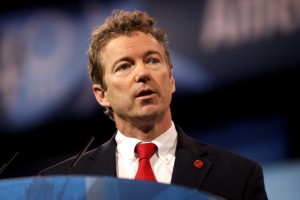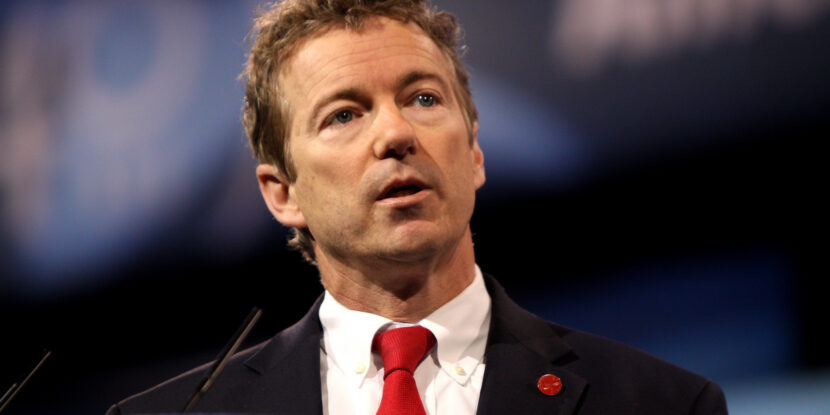
It was good theater, but Rand Paul’s announcement of his candidacy for president today in Louisville, Ky., failed to achieve its essential purpose, which was to expand Paul’s appeal beyond his base of anti-Washington, liberty-motivated voters to other segments of the Republican primary electorate not previously in his corner. No part of the conservative triad – economic conservatives, social conservatives, and defense and foreign policy conservatives – heard much of what they want, and for none of these constituencies does Paul break out as the obvious leader.
The promised “largest tax cut in American history” announced at the Conservative Political Action Conference (CPAC) went unmentioned today. Instead, he proposed to “dramatically lower the tax on American companies that wish to bring their profits home.” This cut in corporate tax rates will both “bring back manufacturing jobs that pay well” (how so was left unexplained) and cause “new highways and bridges [to be] built across the country not by raising your taxes, but by lowering the tax to bring this American profit home.”
Paul’s own “Audit the Fed” bill went unmentioned, which is a shame, because a critique of recent Fed policies is an important part of the narrative of why the economy is so underperforming. His promise to “get the IRS out of your life” has been replaced by a vision of “a restrained IRS, that cannot target, cannot harass American citizens for their political or religious beliefs.”
Economic conservatives do get a balanced budget amendment: “Congress will never balance the budget unless you force them to do so. Our only recourse is to force Congress to balance the budget with a Constitutional amendment.”
For social conservatives, there was an invocation by Pastor Jerry Stevenson of Louisville. They will have to be content with school choice: “We need to stop limiting kids in poor neighborhoods to failing public schools and offer them school choice.” But utterly unmentioned were: defense of the unborn, defense of marriage, Common Core, or his criteria for selecting justices of the Supreme Court.
For defense conservatives, there was a reassuring commitment to maintaining defense capabilities: “I envision an America with a national defense unparalleled, undefeatable, and unencumbered by overseas nation-building.” On Iran, Paul promised to “oppose any deal that does not end Iran’s nuclear ambitions and have strong verification measures,” and to insist on Congressional ratification of the Iran deal. He promised to defend America from radical Islam, but did not mention the state of Israel.
A few other issues were advanced. Term limits: “It’s about time we limit the terms of Congress.” The “Read the Bills Act” (I haven’t read the “Read the Bills” act, so I don’t know how he intends to enforce this one – a test before voting?). Economic freedom zones: “my plan includes economic freedom zones to allow impoverished areas … to prosper by leaving more money in the pockets of the people who live there. Can you imagine what a billion dollar stimulus could do for Detroit or for Appalachia?” And of course, civil liberties protections: “Warrantless searches of America’s phones and computer records are un-American and a threat to our civil liberties.” “The phone records of law abiding citizens are none of their damned business.” “As President, on day one I will immediately end this unconstitutional surveillance.”
And then there is this, which seems fraught with all sorts of implementation challenges: “I see an America where criminal justice is applied equally, and any law which disproportionately incarcerates people of color is repealed.”
A good announcement of presidential candidacy is a bit like a medical exam. There’s the recognition of the symptoms of illness, a diagnosis of the cause, and a prescription for returning to health. This, anyway, would be the formulation you would follow if you seek to persuade voters not already for you. Senator Paul took a different route.
Steve Wagner is the founder and president of QEV Analytics, a Washington DC -based public opinion research firm.


